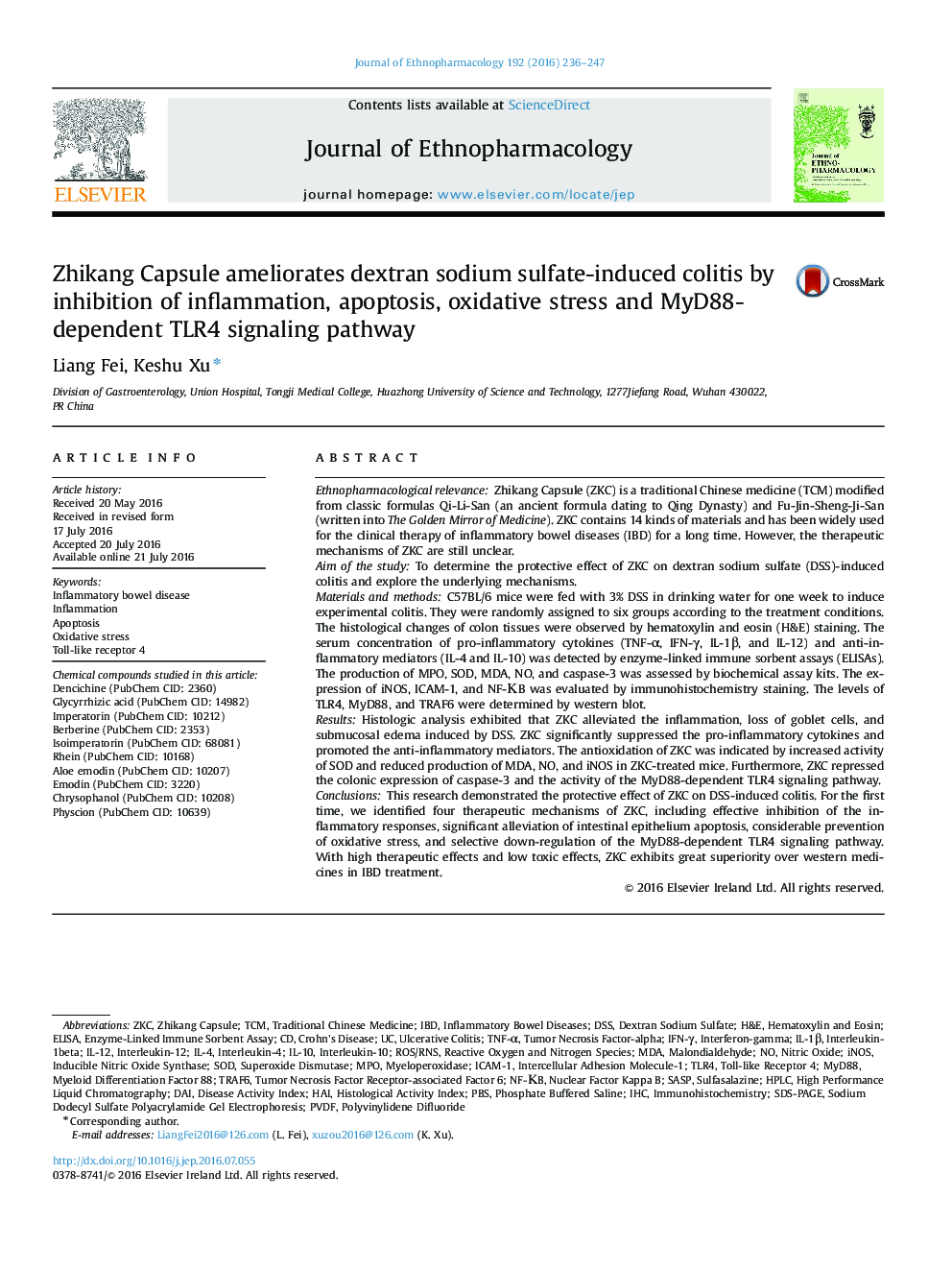| کد مقاله | کد نشریه | سال انتشار | مقاله انگلیسی | نسخه تمام متن |
|---|---|---|---|---|
| 2544551 | 1560370 | 2016 | 12 صفحه PDF | دانلود رایگان |

Ethnopharmacological relevanceZhikang Capsule (ZKC) is a traditional Chinese medicine (TCM) modified from classic formulas Qi-Li-San (an ancient formula dating to Qing Dynasty) and Fu-Jin-Sheng-Ji-San (written into The Golden Mirror of Medicine). ZKC contains 14 kinds of materials and has been widely used for the clinical therapy of inflammatory bowel diseases (IBD) for a long time. However, the therapeutic mechanisms of ZKC are still unclear.Aim of the studyTo determine the protective effect of ZKC on dextran sodium sulfate (DSS)-induced colitis and explore the underlying mechanisms.Materials and methodsC57BL/6 mice were fed with 3% DSS in drinking water for one week to induce experimental colitis. They were randomly assigned to six groups according to the treatment conditions. The histological changes of colon tissues were observed by hematoxylin and eosin (H&E) staining. The serum concentration of pro-inflammatory cytokines (TNF-α, IFN-γ, IL-1β, and IL-12) and anti-inflammatory mediators (IL-4 and IL-10) was detected by enzyme-linked immune sorbent assays (ELISAs). The production of MPO, SOD, MDA, NO, and caspase-3 was assessed by biochemical assay kits. The expression of iNOS, ICAM-1, and NF-ΚB was evaluated by immunohistochemistry staining. The levels of TLR4, MyD88, and TRAF6 were determined by western blot.ResultsHistologic analysis exhibited that ZKC alleviated the inflammation, loss of goblet cells, and submucosal edema induced by DSS. ZKC significantly suppressed the pro-inflammatory cytokines and promoted the anti-inflammatory mediators. The antioxidation of ZKC was indicated by increased activity of SOD and reduced production of MDA, NO, and iNOS in ZKC-treated mice. Furthermore, ZKC repressed the colonic expression of caspase-3 and the activity of the MyD88-dependent TLR4 signaling pathway.ConclusionsThis research demonstrated the protective effect of ZKC on DSS-induced colitis. For the first time, we identified four therapeutic mechanisms of ZKC, including effective inhibition of the inflammatory responses, significant alleviation of intestinal epithelium apoptosis, considerable prevention of oxidative stress, and selective down-regulation of the MyD88-dependent TLR4 signaling pathway. With high therapeutic effects and low toxic effects, ZKC exhibits great superiority over western medicines in IBD treatment.
Figure optionsDownload high-quality image (345 K)Download as PowerPoint slide
Journal: Journal of Ethnopharmacology - Volume 192, 4 November 2016, Pages 236–247